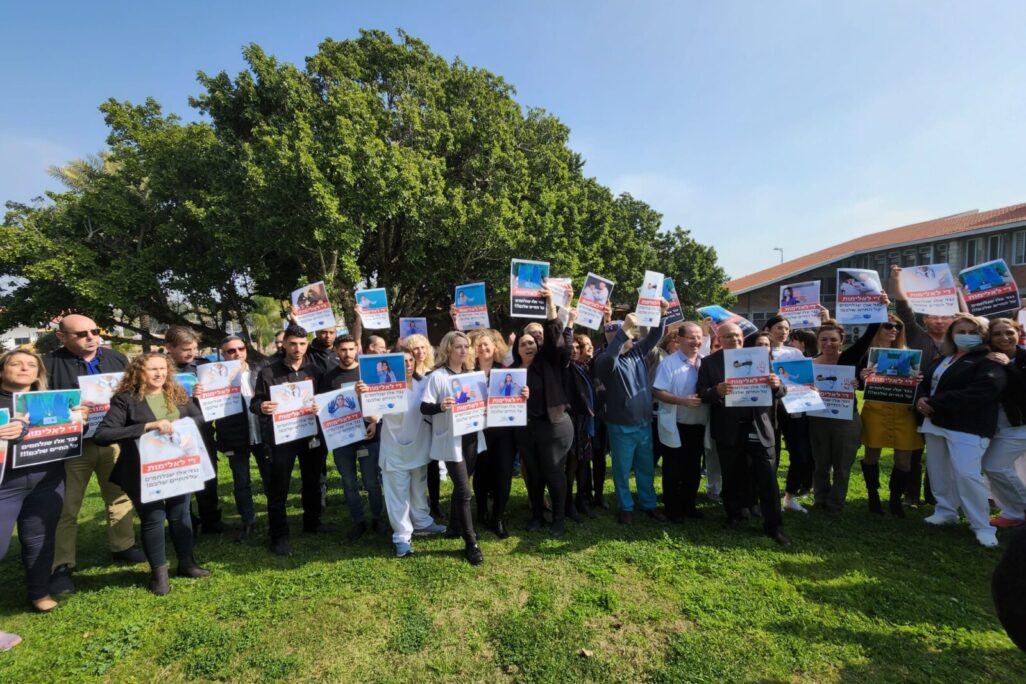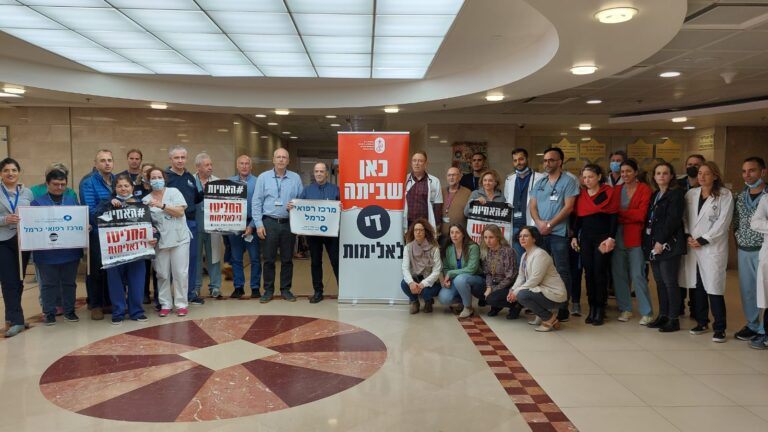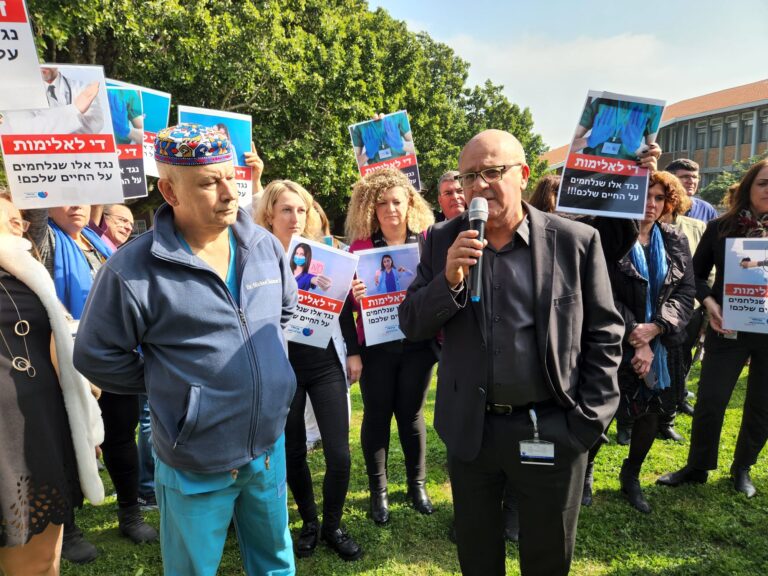
Last Monday, Israel’s Medical Association announced a strike of the entire health system, including hospitals and clinics in protest of the mounting violence against medical staff. On the day of the strike, the health system operated in a reduced “Shabbat format,” and the Medical Association operated an Exceptions Committee for special cases.
“A strike is never the default for us," said Professor Zion Hagi, the Chairman of the Medical Association. "However, violence in the health care system has become an epidemic, and red lines are crossed almost every day. On Monday, the doctors say enough to violence.”
"We have no choice but to shut down the entire system so that someone in the government wakes up and puts an end to this epidemic of violence,” he continued. “We will in no way agree to the reality in which the doctors will be abandoned precisely in the place where they are engaged day and night in saving lives.”
The decision to shut down the health system was made at the end of a lengthy discussion at the Medical Association Secretariat, following a second case of violence against medical staff within days during the previous week. A pediatrician was attacked by a couple of parents at Soroka Hospital in Be'er Sheva, an attack that was followed by a three-hour warning strike at Soroka. Two days later, a gynecologist at the Women's Health Center in Ramla was attacked by a female patient with a metal object.
A third violent incident took place the day before the strike. A man in Akko was accused of slapping a family doctor multiple times after being asked to wait outside. This strike follows a series of strikes by medical staff demanding the government to take further steps to clamp down on the violence.

The Medical Association demanded that the government promote the implementation of the 2017 recommendations of the Mor Yosef Committee to eradicate violence in the healthcare system, which include placing a policeman in every hospital, placing security guards in mental health hospitals, mobile security units for community clinics, tougher punishment for attackers of medical staff, emergency buttons, and more. Despite the progress made in the last year, especially in the field of placing police officers in hospitals, most of the recommendations were partially implemented.
"Despite the increasing violence, and despite the number of cases of violence, neither the employers nor the Ministry of Health are doing enough to eradicate those cases of violence," the doctors wrote in a letter to the public. "Unfortunately, not enough security guards were added to protect the medical teams, the punishment was not strengthened, reporting systems were not implemented to prevent incidents of violence and nothing was done to maintain the safety of the doctors."
Dozens of employees at Barzilai Hospital in Ashkelon held a meeting to discuss the protest. Dr Michael Shalman, Chairman of the Doctor’s Union at the hospital said at the meeting that he “understands the anger and rage of the patients and the frustration with the entire health system, which sometimes does not meet the public’s expectations.”
“But we, the doctors, are not to be blamed,” he continued. “We are not to be blamed for the month-long wait for appointments, we are not to be blamed for the long waiting times in the emergency rooms. It is not up to us. These are, very simply, budget constraints; everything costs money. Therefore rid yourselves of anger. We have the right to defend ourselves and we will take all the measures at our disposal."

The hospital’s director and the former head of the Ministry of Health, Prof. Hezi Levy, referred to the placement of police officers in hospitals, saying “we have not seen a decrease in the number of incidents, it is no secret that society is becoming extreme. But we have seen an increase in the quality of the handling of incidents.”
This article was translated from Hebrew by Nancye Kochen.






